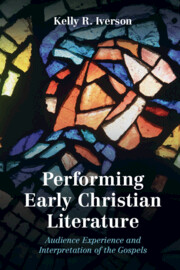Refine search
Actions for selected content:
11 results
6 - The Old and/in the New
- from Part II - Architectural Autobiographies
-
- Book:
- Rebuilding Histories in the Roman World
- Published online:
- 23 November 2025
- Print publication:
- 11 December 2025, pp 274-304
-
- Chapter
- Export citation
What Perceptualists Can Say About Reasons for Emotion
-
- Journal:
- Canadian Journal of Philosophy / Volume 53 / Issue 6 / August 2023
- Published online by Cambridge University Press:
- 18 December 2024, pp. 502-518
-
- Article
-
- You have access
- Open access
- HTML
- Export citation
Materiality of Traumatic Experience and the Limits of Representation in Hassan Bani Ameri's Gonjeshkha Behesht ra Mifahmand (Sparrows Understand Heaven)
-
- Journal:
- Iranian Studies / Volume 57 / Issue 4 / October 2024
- Published online by Cambridge University Press:
- 07 January 2025, pp. 615-635
- Print publication:
- October 2024
-
- Article
-
- You have access
- Open access
- HTML
- Export citation
Chapter 1 - A Cognitive Approach to Ancient Greek Animal Sacrifice
- from Part I - Ritual
-
-
- Book:
- Cognitive Approaches to Ancient Religious Experience
- Published online:
- 28 July 2022
- Print publication:
- 11 August 2022, pp 19-43
-
- Chapter
- Export citation
12 - Travel Writing
- from Part II - Prose Genres
-
-
- Book:
- The Cambridge Companion to Prose
- Published online:
- 05 November 2021
- Print publication:
- 18 November 2021, pp 196-213
-
- Chapter
- Export citation

Performing Early Christian Literature
- Audience Experience and Interpretation of the Gospels
-
- Published online:
- 24 September 2021
- Print publication:
- 07 October 2021
Sensory experience in obsessive compulsive disorder - sensiocd: Do they think or feel differently?
-
- Journal:
- European Psychiatry / Volume 64 / Issue S1 / April 2021
- Published online by Cambridge University Press:
- 13 August 2021, p. S137
-
- Article
-
- You have access
- Open access
- Export citation

Architecture and the Senses in the Italian Renaissance
- The Varieties of Architectural Experience
-
- Published online:
- 30 April 2021
- Print publication:
- 27 May 2021
14 - Meaning and Social Value in Religious Experience
- from Part IV - Prominent Themes and Challenges
-
-
- Book:
- The Cambridge Companion to Religious Experience
- Published online:
- 20 June 2020
- Print publication:
- 16 July 2020, pp 319-334
-
- Chapter
- Export citation
Early visual experience and the receptive-field organization of optic flow processing interneurons in the fly motion pathway
-
- Journal:
- Visual Neuroscience / Volume 18 / Issue 1 / January 2001
- Published online by Cambridge University Press:
- 10 April 2001, pp. 1-8
-
- Article
- Export citation
